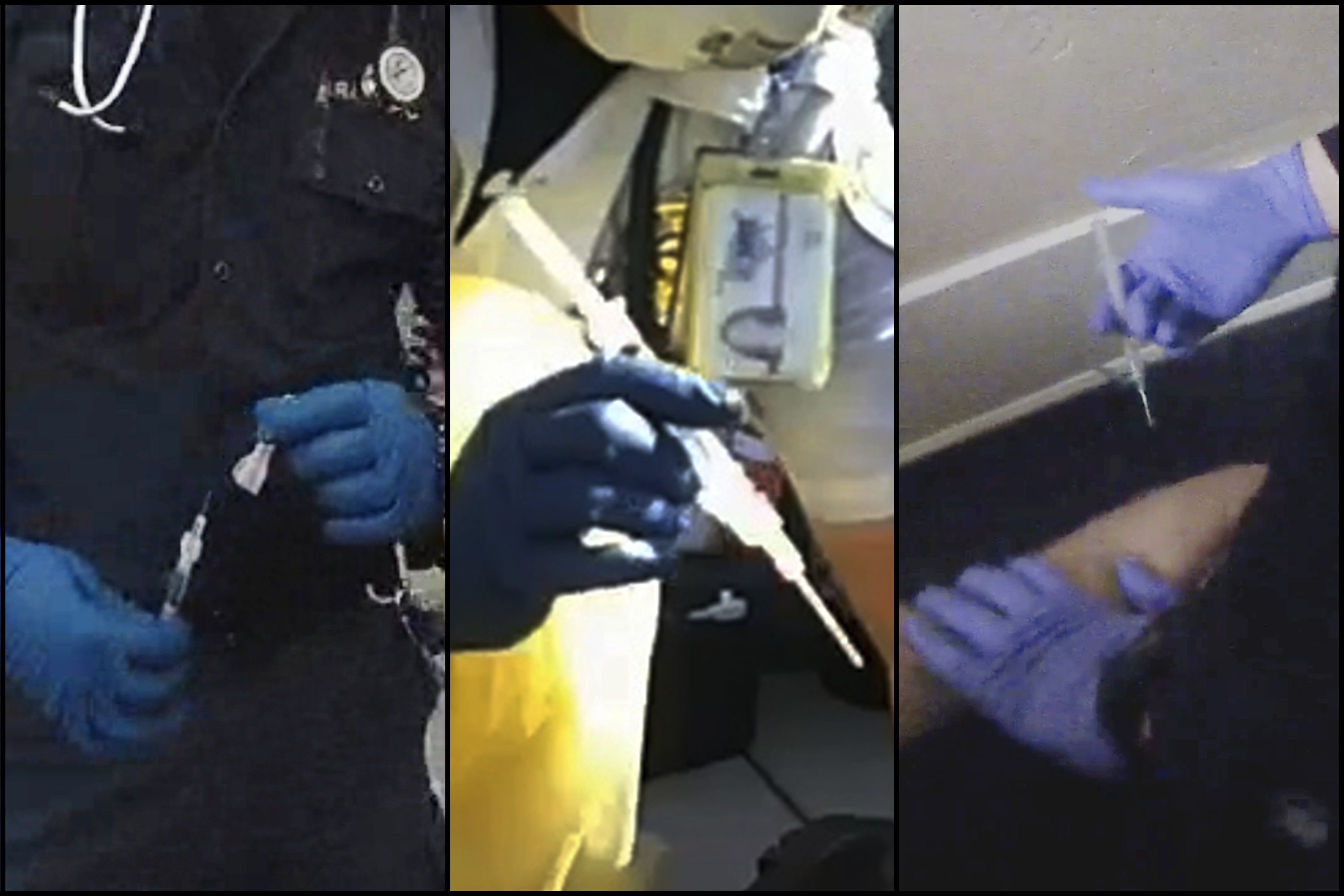The City Council vetoed a permit on Friday, that would have allowed one of the Port of Los Angeles' largest shipping companies to introduce electric-powered automated cargo handlers, which dockworkers fear will cost them jobs.
But whether the council's action will have any effect remains unclear, with shipping company officials saying they are contractually permitted to bring in automated equipment, regardless of a city permit.
The council vetoed an action by the Board of Harbor Commissioners, which last week authorized the Danish firm Maersk, the world's biggest container shipping company and one of the major cargo operators at the Port of Los Angeles, to bring in several automated cargo carriers that move shipping containers between ships and trucks.
The equipment would be used at the port by Maersk subsidiary APM Terminals.
City Councilman Joe Buscaino asked earlier this week that the council consider a veto of the commission's action. Hundreds of dockworkers packed the council chamber Friday for the discussion.
"Many of you (port employees) actually just got off of work and came straight here, so thank you for being here," Buscaino told the crowd. "This is an important issue for you, for the people I represent for the city and overall this country."
The dockworkers, represented by the International Longshore and Warehouse Union Local 13, changed "no robots" outside City Hall prior to the council meeting.
U.S. & World
Gary Herrera, vice president of the ILWU Local 13, told the council the automated equipment will have "major impacts."
"Unlimited automation will cause harm and has significant impacts to the port and the surrounding environment," he said.
Council President Herb Wesson told the crowd it was the council's job to provide oversight of its various commissions and review their decisions when needed.
"It is important that we do the job that the people hired us to do, and people may not at times believe this, but we are in the people business. That is our job," Wesson said. "So I can say without hesitation or pause, to the ILWU, that we got you."
The council's vote sends the issue back to the Harbor Commission for further discussion. But APM officials appear poised to move ahead with the automated equipment anyway.
Wim Lagaay, the chairman of APM Terminals Pacific, sent a letter to the council and the mayor earlier this week stating that the company has the contractual authority to install the automated equipment.
"APMT has the undisputed right under its lease and its collective bargaining agreement to introduce automated technology of this sort and does not require and permit or any other port, city or state approval to operate automated, driverless trucks," Lagaay wrote.
He said a council veto would not stop the automated equipment, but it would require the equipment to be powered by diesel motors, instead of cleaner electric motors.
APM and Maersk officials claim the automated technology is essential to compete with other major U.S. ports, noting that the automated equipment can be operated around the clock and not be restricted by dockworker hours.
Danielle Sandoval, president of the Harbor City Neighborhood Council, said the panel had asked the Harbor Commission to shelve the permit approval until a local economic analysis on the impact of automation was completed.
"Did they do that? No. We were ignored, the community was ignored," Sandoval said. "Frankly, we were disrespected because we are the voice of the community."
According to ILWU, tens of thousands of port employees acquire shift assignments each day, and those opportunities may be reduced between 500 to 700 per day.
Diane Middleton, a Harbor Commission member who dissented in the permit vote last week, said the move will "lead to a tremendous loss of business." She said if 500 work opportunities are lost per day, that could translate into $200,000 lost per day to the local economy or $52 million a year.
On Tuesday, June 25, the Los Angeles County Board of Supervisors voted to conduct a study of the potential economic impact on automation of jobs at the port.
Supervisor Janice Hahn proposed the study, saying the port was a source of "good, middle-class jobs" and raising concerns about robots replacing cargo handlers and other port workers.
"Do we really want a society full of robots?" she asked.



